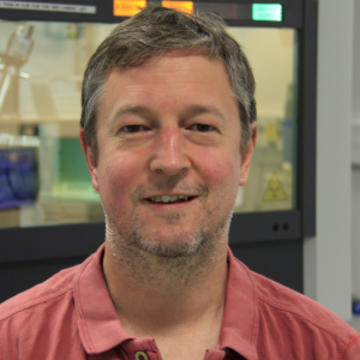Professor Andrew Beale, co-founder of Finden

Prof. Andrew Beale is the co-founder of Finden, a scientific consultancy company he set up with Dr. Simon Jacques in 2012. Based on the Harwell Campus in Oxfordshire, Finden has been offering advanced characterisation and analysis since 2012, helping businesses and organisations across sectors to develop and improve their products.
In addition to conventional laboratory measurement and analysis, they also offer unique measurement services using state-of-the-art equipment, capable of giving unprecedented scientific insight. Working one-to-one with clients, Finden are able to assign experts from a pool of exceptional technicians and researchers to meet their client’s needs, providing timely measurement services to order or longer-term research programmes.
I am a Professor of Inorganic Chemistry at University College London, a group leader at the Research Complex at Harwell and an EPSRC Early Career Fellow. I am a researcher and specialist with 20 years’ experience in the application of spectroscopic and scattering methods for materials characterisation. I specialise in the development of in situ/operando time-resolved sampling methods, chemical imaging and materials design and development for application in heterogeneous catalysis.
Finden came about to meet the increasing appetite of industry for cutting-edge methods to problem solve and develop their technology. Whilst the UK academic environment has great strength for fundamental and early-stage research, it is not geared to address the immediate scientific needs of industrial clients. Finden aims to bridge the gap, providing UK and European companies access to the best facilities and expertise to drive forward technological developments. It is this that can gives industry the edge in developing better products and meeting societal needs

There is a lot of definitions out there! Nowadays, the word seems to be closely associated with innovation, specifically technological innovation. Whilst we can be considered a technology start-up we have not followed the classical venture-capital / business angel assisted model but have been ‘free’ to grow organically. For us entrepreneurship has been about learning and vision; learning to solve problems, manage risk and improve; the vision to see problems and solutions, see opportunities and have your eye on the long game.
Probably after our first few years in business when we realised that things were going too well (!) and we had to expand.
Be diligent in looking at your business – to help you identify problems and opportunities.
Learn from others – keep asking for advice. Learning from others is almost a daily requirement (reading scientific papers, following technical instructions etc.) but running a business is a learning experience and we listen carefully to those with experience to try to make the best of things. It’s amazing how much support is out there.
The knowledge that our work is contributing to major technical developments benefiting society. As a recent example, our insight directly led to the intelligent redesign of a catalytic converter unit which will benefit not only the client but through reduced emissions improve the environment for all in society.
There are so many to choose from but I’m going to narrow the field to two (!), Sir Clive Sinclair and Chris Curry, fathers of Sinclair and Acorn computers respectively. Growing up in the 80’s, I was in awe of the computers that they had built. Somehow these guys managed to make affordable amazing machines for kids like me to mess about on. Their story reads like something from Greek mythology – in the end, tragically, they both lost out fighting each other. Nevertheless, they were brilliant at inventing and bringing technology forward.
How did you do it? (Particularly – how did you persuade the banks to lend you money!).
The biggest lesson being aware of your likely future financial position. At one point, even though things looked very rosy, we could foresee a serious cash flow problem some 9 months ahead. Surprisingly, 9 months was only just enough time to create and expedite enough business to overcome this problem without having to revert to more drastic solutions. It might seem obvious but you need to allocate time to business development and this needs to be done in a timely and structured manner.
At the very beginning we self-funded the setting up of the business. If you are prepared to take on a multitude of tasks yourself it is surprising how little investment is needed to get a business going. More recently, we have reinvested our profits to grow our business.
Quite early into our business we applied (with collaborators) and were fortunate enough to be awarded funding for a European Union Horizon 2020 research programme. Whilst requiring us to support our partners research this grant gave us the financial stability to develop in our early years. More recently, we were successfully awarded an Innovate UK grant to help develop active paints for improving indoor air quality. The research is kicking off this month and we are very excited by this project.
European Union Horizon 2020.
Innovate UK.
Good: Being based in the Harwell science campus gives us access to the best equipment and leading experts. There are good UK central science facilities at Harwell with access to standard and specialist characterisation equipment which enables us to study a range of material systems covering needs of different sectors.
Bad: Transport is definitely an issue – though things are improving slowly. It would be nice if there was better links to Heathrow!
We have not used them (yet) but we have heard about Oxfordshire Business Support who can help with not just starting out but growing your business as well.
Try and stay positive – certainly from an attitude perspective but also on the balance sheet.
Share this
More news



